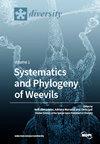The Silent Extinction of Species and Taxonomists—An Appeal to Science Policymakers and Legislators
IF 2.1
3区 生物学
Q2 BIODIVERSITY CONSERVATION
引用次数: 3
Abstract
The science of taxonomy, albeit being fundamental for all organismic research, has been underfunded and undervalued for about two generations. We analyze how this could happen, particularly in times of a biodiversity crisis, when we have increased awareness amongst the population and decision makers that knowledge about species we share the planet with is indispensable for finding solutions. We identify five major issues: the habit of holding taxonomy in low esteem; the focus on inappropriate publication metrics in evaluating scientific output; the excessive focus on innovative technology in evaluating scientific relevance; shifting priorities in natural history museums away from their traditional strengths; and changing attitudes towards specimen collecting and increasing legislation regulating collecting and international exchange of specimens. To transform taxonomy into a thriving science again, we urgently suggest significantly increasing baseline funding for permanent positions in taxonomy, particularly in natural history museums; reviving taxonomic research and teaching in universities at the tenured professor level; strongly increasing soft money for integrative taxonomy projects; refraining using journal-based metrics for evaluating individual researchers and scientific output and instead focusing on quality; installing governmental support for open access publishing; focusing digitizing efforts to the most useful parts of collections, freeing resources for improving data quality by improving identifications; requiring natural history museums to focus on collection-based research; and ending the trend of prohibitive legislation towards scientific collecting and international exchange of taxonomic specimens, and instead building legal frameworks supportive of biodiversity research.物种和分类学家的无声灭绝——对科学政策制定者和立法者的呼吁
分类学虽然是所有生物研究的基础,但在大约两代人的时间里,分类学一直受到资金不足和低估。我们分析了这是如何发生的,特别是在生物多样性危机时期,当我们提高了人们和决策者的意识,了解与我们共享地球的物种对于找到解决方案是必不可少的。我们确定了五个主要问题:轻视分类学的习惯;在评估科学产出时关注不适当的出版指标;在评价科学相关性时过分注重创新技术;将自然历史博物馆的重点从其传统优势转移;改变对标本收集的态度,增加规范标本收集和国际交换的立法。为了使分类学再次成为一门蓬勃发展的科学,我们迫切建议大幅增加分类学永久职位的基线资金,特别是在自然历史博物馆;恢复大学终身教授级别的分类学研究和教学;大力增加综合分类项目软资金;避免使用基于期刊的指标来评估个别研究人员和科学产出,而是关注质量;加强政府对开放获取出版的支持;将数字化工作集中在馆藏中最有用的部分,通过改进标识来释放资源,以提高数据质量;要求自然历史博物馆注重以收藏为基础的研究;结束禁止科学收集和分类标本国际交换的立法趋势,转而建立支持生物多样性研究的法律框架。
本文章由计算机程序翻译,如有差异,请以英文原文为准。
求助全文
约1分钟内获得全文
求助全文
来源期刊

Diversity-Basel
Environmental Science-Ecological Modeling
CiteScore
3.40
自引率
12.50%
发文量
925
审稿时长
11 weeks
期刊介绍:
Diversity (ISSN 1424-2818) is an international and interdisciplinary journal of science concerning diversity concept and application, diversity assessment and diversity preservation. It is focused on organismic and molecular diversity. It publishes reviews, regular research papers and short notes in the regular issues. Related news and announcements are also published. Our aim is to encourage scientists to publish their experimental and theoretical results in as much detail as possible. Therefore, there is no restriction on the length of the papers. Full experimental details must be provided so that the results can be reproduced.
 求助内容:
求助内容: 应助结果提醒方式:
应助结果提醒方式:


